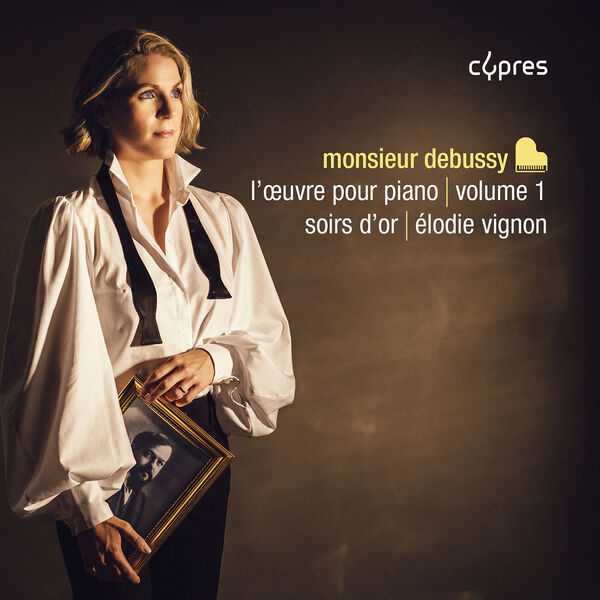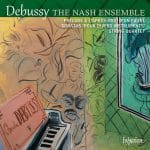

Composer: Claude Achille Debussy
Performer: Élodie Vignon, Nathanaël Gouin
Number of Discs: 2
Format: FLAC (tracks)
Label: Cypres
Catalogue: CYP1687
Release: 2025
Size: 5.68 GB
Recovery: +3%
Scan: cover
CD 01
01. Prélude à l’après-midi d’un faune, L. 86 (Arr. Pour Deux Pianos de Claude Debussy)
02. Rêverie, L. 8
03. Arabesque No. 1, L. 66
04. Arabesque No. 2, L. 66
05. Danse bohémienne, L. 9
06. Valse romantique, L. 71
Suite bergamasque, L. 75
07. I. Prélude
08. II. Menuet
09. III. Clair de lune
10. IV. Passepied
11. Danse “Tarentelle styrienne”, L. 69
12. Mazurka, L. 67
13. Ballade, L. 70
Images oubliées, L. 87
14. I. Lent (mélancolique et doux)
15. II. Souvenir du Louvre
16. III. Quelques aspects de Nous n’irons pas au bois parce qu’il fait un temps insupportable
17. Nocturne, L. 82
CD 02
Pour le piano, L. 95
01. I. Prélude
02. II. Sarabande
03. III. Toccata
Images (1ère série), L. 110
04. I. Reflets dans l’eau
05. II. Hommage à Rameau
06. III. Mouvement
Estampes, L. 100
07. I. Pagodes
08. II. La Soirée dans Grenade
09. III. Jardins sous la pluie
10. Pièce pour piano “Morceau de concours”, L. 108
Images (2ème série), L. 111
11. I. Cloches à travers les feuilles
12. II. Et la lune descend sur le temple qui fut
13. III. Poissons d’or
14. Masques, L. 105
15. D’un cahier d’esquisses, L. 99
16. L’Isle joyeuse, L. 106
For Elodie Vignon, the decision to record Debussy’s complete piano works in chronological order was born of what the Prelude a l’apres-midi d’un faune was in Debussy’s day: a revelation! For her, playing this music is like entering a cocoon that belongs to you alone.
This first volume (generous with 2CDs) of the three that will make up the complete works, naturally begins with Debussy’s early works, pieces directly inspired by poems by Mallarme and Verlaine and which embrace the mysterious dimension of the sensory imagination. In the years that followed, he increasingly freed music from the polarisation exerted by the tonal note, keeping the sound space open and ultimately initiating spectral music.
Debussy liked to draw inspiration from memories when composing, in order to maintain a distance between his own emotions and those he wished to arouse in the listener. Alfred Cortot spoke of evoking sensations rather than feelings, thus rejecting the late-Romantic aesthetic of emotional identification between composer and listener: an obligation that seemed too constraining to Debussy to be able to give rise to an open dialogue with the listeners of his work.
Giving the impression of being invented as it is played, Debussy’s music invites us to dream, to better understand the complexity of the world.



